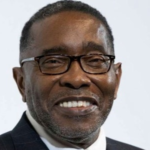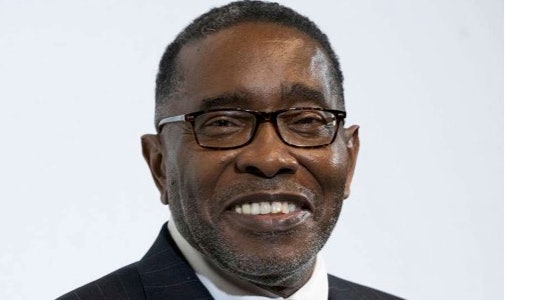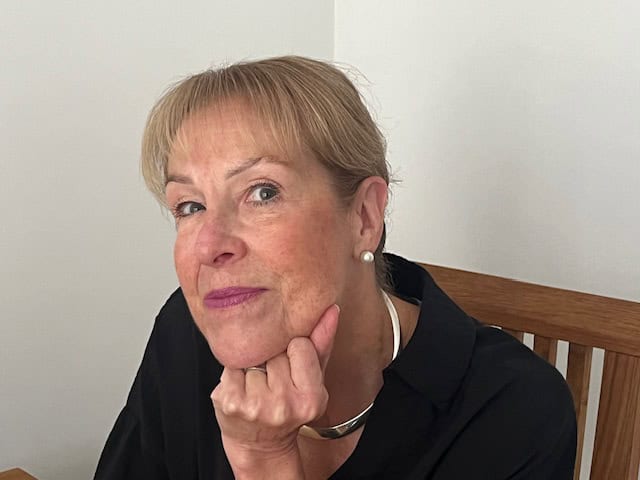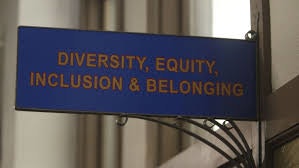 Dr. Christopher A. Brooks
Dr. Christopher A. Brooks
Brooks recalls his father’s experiences in the Merchant Marines in the 1950s, visiting West Africa, and how the parental influence extends into his work as an anthropologist and professor at Virginia Commonwealth University.
“Both of my parents made their children aware of African history and geography when we were young,” reflects Brooks, during his most recent excursion to Kenya. “For example, I knew where the Zambezi River was along with the so-called ‘Zimbabwe ruins,’ now known as ‘Great Zimbabwe,’ in Masvingo.”
Brooks has been to both places, including 25 countries on the African continent to date.
“I visited the African continent for the first time as a Fulbright doctoral student in 1985,” he says. “Although I was based in Nigeria, I visited several countries, including Egypt, Ghana, Kenya, Benin, and Cameroon. In the 1990s, I began exploring several southern African countries, including Zimbabwe, South Africa, Zambia, Swaziland, and Botswana, among other countries.”
The Baltimore native studies and researches anthropology specific to the African diaspora.
“As an Africanist anthropologist, I had a keen interest in many continental traditions and practices and how those traditions manifested themselves in North and South America as a result of the trans-Atlantic enslavement experience,” he says.
Brooks continued his exploration of the vast African diaspora in 2011, alongside other internationally known scholars, as the general editor of the 1,600-page African American Almanac (Cengage Gale, 2011). Through the Voices of Men: South African Men and HIV (Linus Learning, 2011) was inspired by research on the proliferation of HIV cases and is part of a book series that includes Dual Pandemics: HIV and the Coronavirus in Several Kenyan Communities (Linus Learning, 2024).
“That work is based on several recent field trips to that East African country,” says Brooks, whose latest project, Tales of Koehler Hollow: An African American Family in Rural Appalachia (Unsung Voices Books, 2024), is an outgrowth of his African diasporan proclivities.
Tales of Koehler Hollow is an American experience.
“Not being familiar with the African American Appalachian experience, it was a major undertaking for me,” he explains. “Like most Americans, when we think of Appalachia, we think about hillbillies in West Virginia. Well, to my amazement, there was and is a very long-standing and pronounced African American presence throughout the history of Appalachia.”
Brooks met Naomi Hodge-Muse, co-author of Tales of Koehler Hollow, in 2012. She shared stories of her family dating back to her great-great-grandmother Amy Finney, who had been enslaved in the South West Virginia region, outside Martinsville.
“The land was purchased in 1890 by the emancipated Amy, expanded by her son, George Washington Finney (Hodge-Muse’s great-grandfather), and the same land remains in that family today nearly 135 years later,” says Brooks, noting that what started as a collection of 55 family vignettes evolved into Tales of Koehler Hollow.
“When she (Hodge-Muse) took me to an old abandoned African American cemetery in Fieldale, Virginia, where her great-great-grandmother, great-grandparents, and other relatives were laid to rest, I began to understand the gravity of the task that lay ahead,” he continues. “I had the responsibility of telling this family’s story, dating back from the 19th century to the present.”
The story is a captivating read, according to colleague Dr. Faye Z. Belgrave, a psychology professor, vice president for inclusive excellence, and chief diversity officer at Virginia Commonwealth.
“Although this is essentially Hodge-Muse’s biographical account of her family experiences, the depiction of Black Appalachia (in Southwest Virginia) is stark, visceral, amusing, and relatable on many levels,” says Belgrave. “Tales of Koehler Hollow is a fascinating read which I highly recommend.”
Brooks takes pride in his profession, telling unheard stories and promoting the humanity and dignity of others’ lives.
“If someone like me had not come along and taken up the charge of telling their stories, I am not sure they would have been told,” says Brooks. “I see that as an important contribution to our collective knowledge and the variety of my work.”
Brooks says he harbored fears early in his career that he would run out of things to write about. Those fears have faded.
“I continue to be curious about the range and depth of African and African-derived experiences,” says Brooks, whose works to date figure 11 books and counting. “I am a senior professor who has been teaching and researching issues for more than 30 years, and I sometimes feel that I have barely scratched the surface in many areas.”
#Scholarship #Telling #Stories #African #Diaspora










